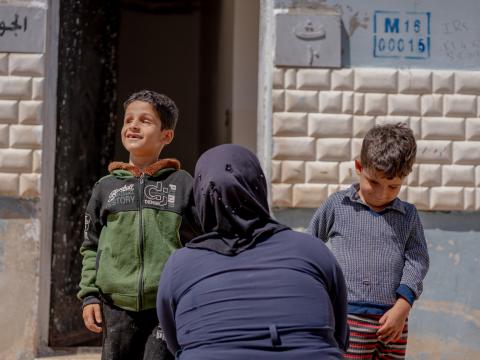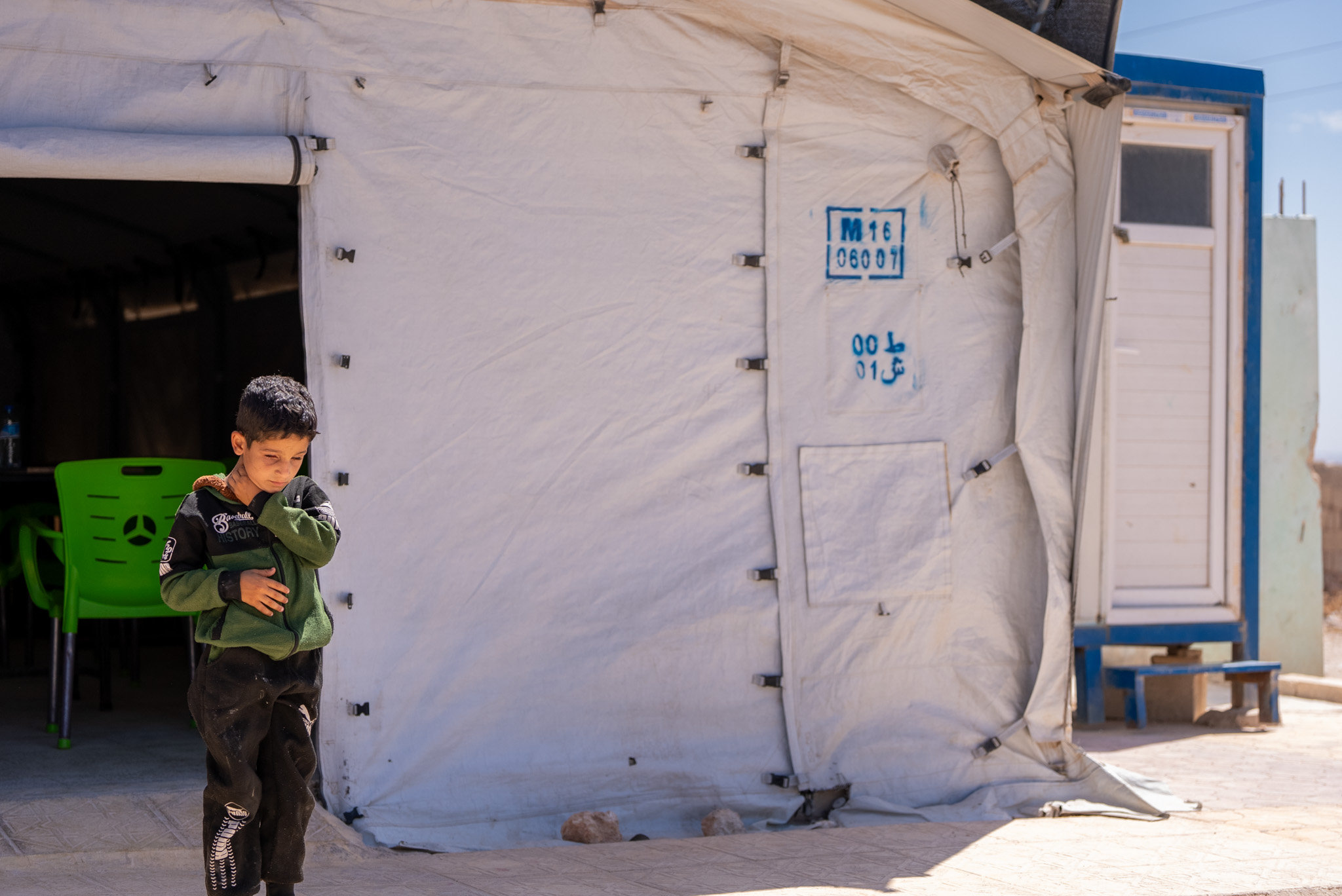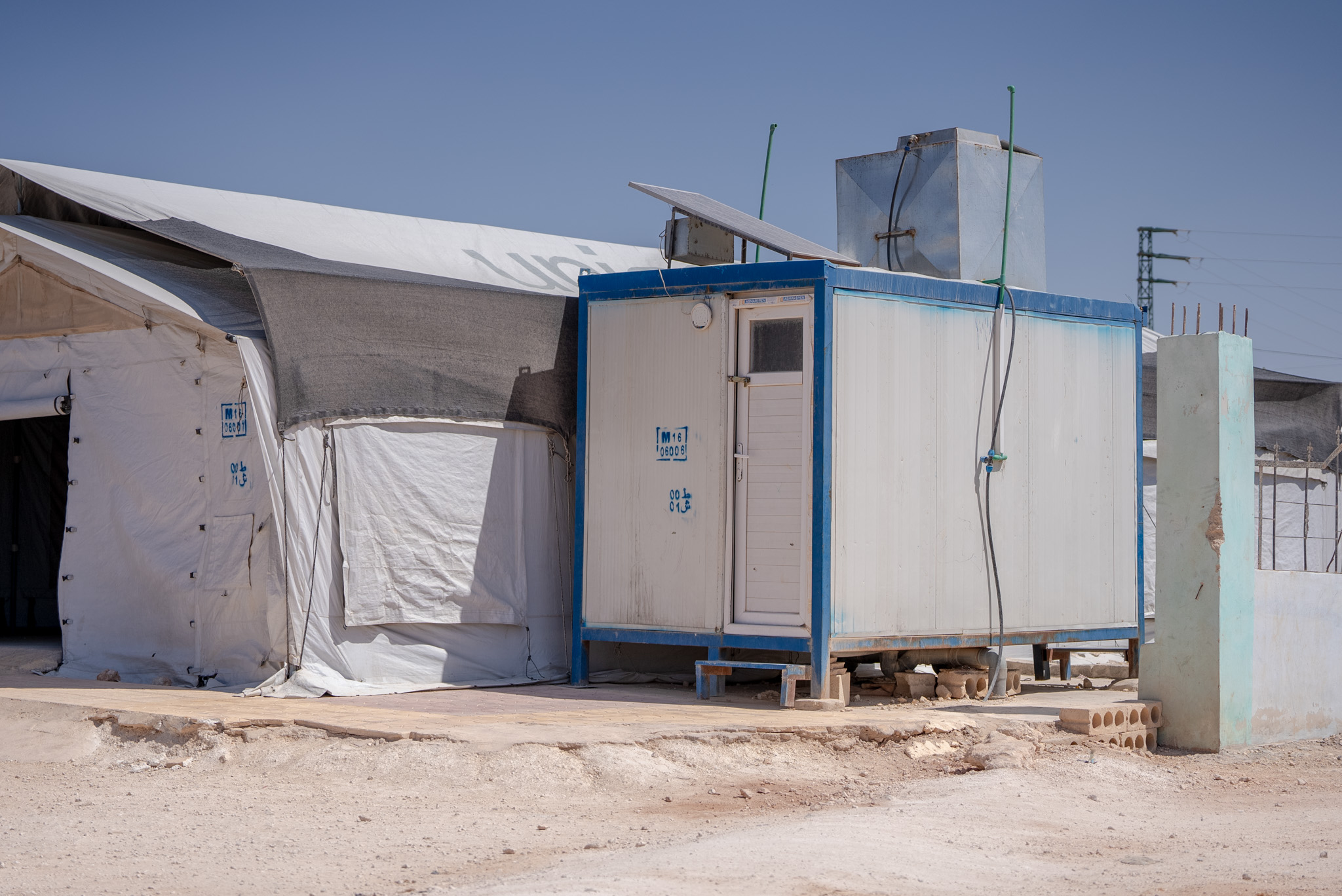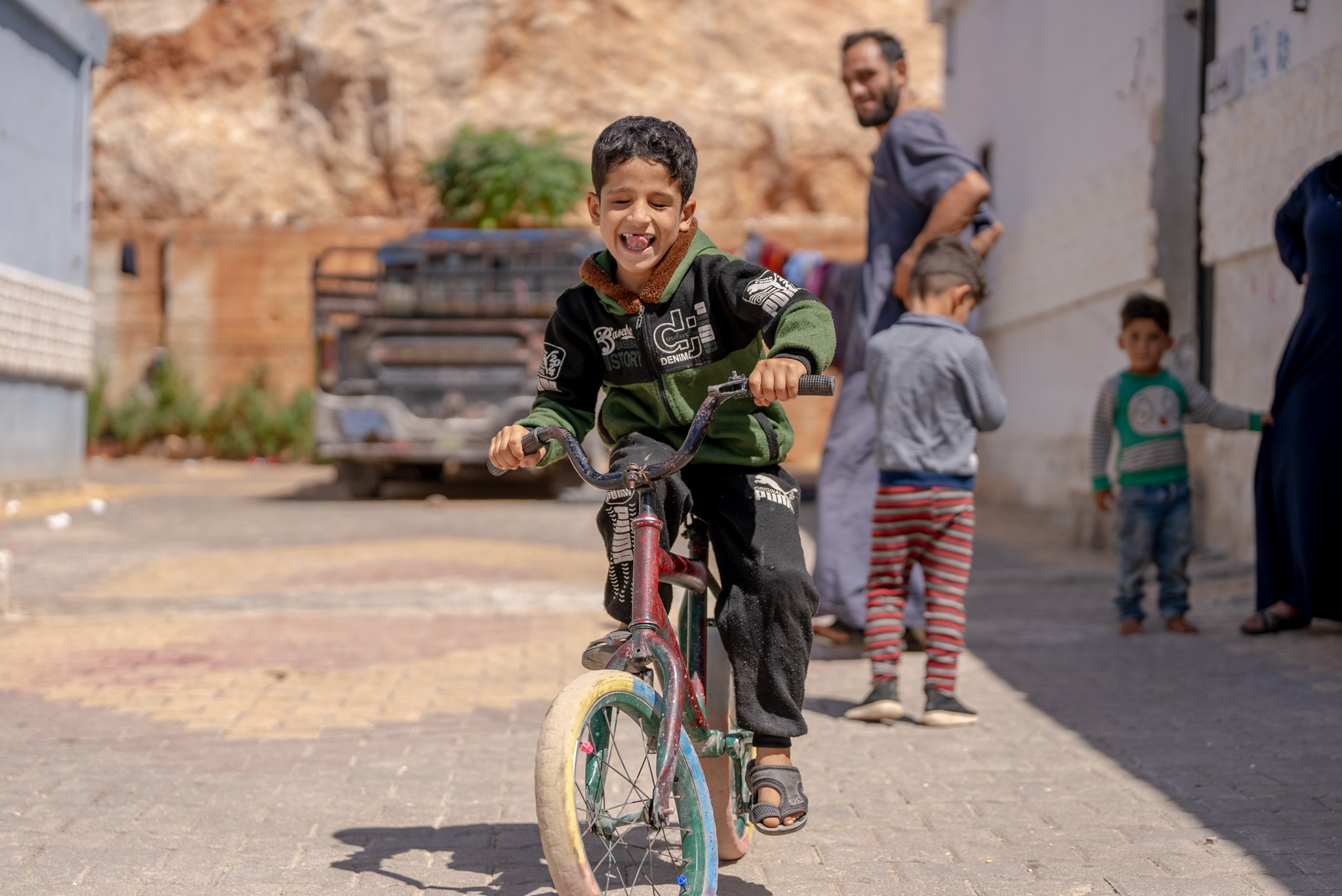'We have come so far. I can see a future for my children now'

Written by: Zaher Jaber
Um Khaled's* eyes reflect years of suffering. The 30-year-old mother of five sits quietly in her small room in a secluded camp in Northwest Syria. Displaced from her home, she's endured unimaginable challenges.
A recent intervention from World Vision Syria Response has given her a glimmer of hope—something that seemed impossible not too long ago. Her family is finally starting to feel some relief.
Before the Syrian conflict turned their lives upside down, Um Khaled and her family lived a simple yet happy life. “My children used to run around freely, and I never imagined I’d one day face the struggle of finding food or shelter,” she recalls.
Her son, Khaled, was just three months old when everything changed in 2017. Merciless attacks devastated her hometown and overnight, the world she knew had collapsed. Khaled, whose vision had been perfect, began to lose his sight.
As time went by, it became clear that the exposure had not only taken her son's sight, but it would also affect her unborn baby. It broke Um Khaled's heart when Sameh* was born blind and later diagnosed with autism. This simply made her love for him grow stronger.

After fleeing the devastation, Um Khaled and her family faced displacement not once, but three times. Forced to live in tents with scarce resources, their survival was a daily battle.
For Um Khaled, a mother raising two blind children, one of whom also has autism, the hardships felt almost unbearable. "I couldn’t leave them alone for a minute," she recalls. "Even going to the bathroom was a struggle. My son needed help with everything."
For years, the family lived in uncertainty, with no stable home and no access to services for their children. The strain on Um Khaled’s physical and emotional health was immense, and yet, she kept going, driven by her love for her children.
Um Khaled’s life took a positive turn when she and her family moved to the camp in 2021. It wasn’t easy to secure a place due to the huge numbers of people displaced at that time, but once they did, things slowly started to improve.
The camp had basic facilities, but they still faced challenges, especially for the children. “The toilets at the school were not equipped for children like mine,” she says. “I had to walk with them to the bathroom, stay with them, and then bring them back. It was exhausting.”
That’s when the Disability, Inclusive WASH, Protection and Livelihoods project, funded by Finland's Ministry of Foreign Affairs, came into their lives. Aimed at improving the camp’s infrastructure, the project began by installing water networks and constructing proper sanitation facilities for 85 families, including 106 individuals with special needs—families like Um Khaled’s.
The most significant change for Um Khaled? Her son now has a private toilet designed to accommodate his needs.

"This lifts the burden a little bit off my shoulders,” she says with a smile. “It’s something small, but it makes such a huge difference in our daily lives. Now, he has the privacy and support he needs, and I don’t have to worry as much.”
The improvements didn’t stop there. The camp now has upgraded sanitary facilities, water tanks, and a stable electricity supply. Children participate in recreational activities like LEGO play, giving them a sense of normality. Hygiene kits have been distributed to all the families, improving overall living conditions.
"Seeing my kids smile and knowing we have what we need to stay healthy gives me a little more hope each day," says Um Khaled.
The changes have felt profound. “Before, we were always struggling, just trying to survive,” she explains. “Now, I feel like we are part of a community that cares for us. It’s not just about survival anymore—it’s about living with dignity.”
Though the challenges haven’t disappeared, Um Khaled says that the support she’s received has given her a renewed sense of hope. “I want my children to grow up in a world where they can dream, where they have opportunities. This project has made me believe that’s possible.”

Through all the hardship, Um Khaled’s spirit has remained unbroken. Her strength and perseverance, combined with the help of humanitarian projects, have slowly but surely transformed her family’s life.
With a smile, she says, “We have come so far. I can see a future for my children now—a future that isn’t defined by hardship, but by hope.”
*Names have been changed to protect identities.
